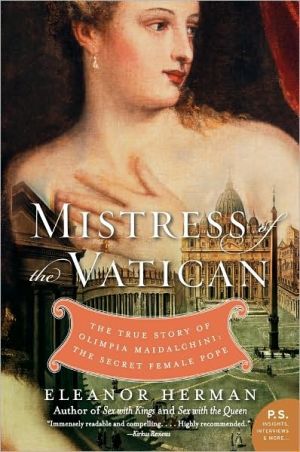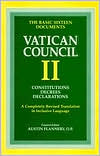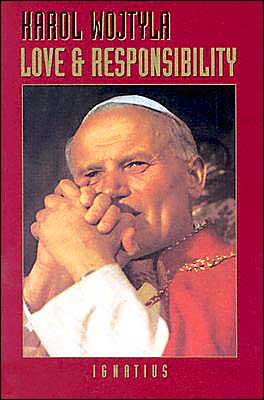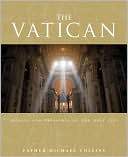Mistress of the Vatican: The True Story of Olimpia Maidalchini: The Secret Female Pope
Born without a dowry, nearly forced into a convent, and later married off to a man she didn't love, Olimpia Maidalchini vowed never to be poor, powerless, or beholden to any man again. Instead, using her wits, Olimpia became the unofficial ruler of the most powerful institution in the world: the Roman Catholic Church.\ The Church firmly states that women must be excluded from church leadership positions—but for more than a decade in the seventeenth century, Olimpia ran the Vatican. As...
Search in google:
"We have just elected a female pope." —Cardinal Alessandro Bichi, 1644 Today's Roman Catholic Church firmly states that women must be excluded from church leadership positions, but they neglect to mention that for over a decade in the seventeenth century a woman unofficially, but openly, ran the Vatican. Now, Eleanor Herman, author of Sex with the Queen, exposes one of the church's deepest secrets, laying bare facts that have been concealed for 350 years. Beginning in 1644 and for eleven years after, Olimpia Maidalchini, sister-in-law and reputed mistress of the indecisive Pope Innocent X, directed Vatican business, appointed cardinals, negotiated with foreign ambassadors, and helped herself to a heaping portion of the Papal State's treasury. Unlike the ninth century's Pope Joan, whose life is shrouded in mystery, Olimpia's story is documented in thousands of letters, news sheets, and diplomatic dispatches. Knowing of Pope Innocent's absolute dependence on his sister-in-law, Cardinal Alessandro Bichi angrily declared on the day of Innocent's election, "We have just elected a female pope." Mischievous Romans hung banners in churches calling her Pope Olimpia I. Cardinal Sforza Pallavicino bewailed the "monstrous power of a woman in the Vatican." One contemporary wrote that women might as well become priests, since one of them was already pope. Born in modest circumstances, Olimpia was almost forced into a convent at the age of fifteen due to the lack of a dowry. She used deceit to escape, and vowed never to be poor and powerless again. Throughout her life, Olimpia exacted excruciating vengeance on anyone who tried to lock her up or curb her power. But her grisly revenge on the pope who loved her would be reserved for after his death. . . . Seventeenth-century Rome boasted the world's most glorious art and glittering pageants but also suffered from famine, floods, swarms of locusts, and bubonic plague. Olimpia's world was kleptocratic; everyone from the lowliest servant up to the pope's august relatives unblushingly stole as much as they possibly could. Nepotism was rampant, and popes gave away huge sums and principalities to their nephews instead of helping the poor. Dead pontiffs were left naked on the Vatican floor because their servants had pilfered the bed and stripped the corpse. Mistress of the Vatican brings to life not only a woman, and a church, but an entire civilization in all its greatness . . . and all its ignominy. Publishers Weekly Starred Review.In this engrossing "forgotten story" of the Vatican, Herman (Sex with the Queen) relays not only the life of 17th Cenutry Papal puppet-master Olimpia Maidalchini, but the political and social history of her age, including glimpses of art and architecture, family relations, medical care, religious traditions and daily life. Born into a family of average means, Maidalchini rebelled successfully against her father's plans to place her in a convent. This early triumph gave her a will that she'd eventually use to grab the ultimate seat of power in 17th century Italy, the Papacy, through the likely accomplice of her indecisive brother-in-law, a lawyer with holy orders who was dazzled by Maidalchini's intelligence, planning and accounting capabilities. He submitted to the her plans, and she eventually ushered him into power as Pope Innocent X. As her wealth and strength grow, so does the resentment around her, but her fate would be sealed by the bubonic plague. Exhaustively researched, with historical vignettes interwoven seamlessly, Herman's latest provides a window into an age of empire, nepotism and intrigue that rivals any novel for fascinating reading. Copyright © Reed Business Information, a division of Reed Elsevier Inc. All rights reserved.
Introduction 1Pt. 1 The Girl from Viterbo1 The Convent 92 The Wealthy Landowner's Wife 293 The Roman Noblewoman 384 The Brother-in-Law 525 The Papal Nuncio 666 Cardinals 787 The Black Widow 988 Conclave 117Pt. 2 The Female Pope9 The Vicar of Christ 13710 Celebrations 14911 Women in the Vatican 16112 Vengeance on the Barberinis 17913 The Despised Daughter-in-Law 19614 The Imbecile Cardinals 20915 Birth, Famine, and Bitter Peace 22316 The Shoulder of Saint Francesca 23717 The Holy Jubilee Year 25718 Crisis of Conscience 274Pt. 3 Unforgiveness19 Honor and Dishonor 29320 Olimpia's Triumphant Return 31121 The Sudden Disgrace of Cardinal Astalli 33122 Death of the Dove 34823 Unforgiveness 36524 Pope Alexander VII 37225 The Two Queens of Rome 38426 The Scourge of God 39527 After Olimpia 409Notes 421Bibliography 433Index 439
\ Publishers WeeklyStarred Review.\ In this engrossing "forgotten story" of the Vatican, Herman (Sex with the Queen) relays not only the life of 17th Cenutry Papal puppet-master Olimpia Maidalchini, but the political and social history of her age, including glimpses of art and architecture, family relations, medical care, religious traditions and daily life. Born into a family of average means, Maidalchini rebelled successfully against her father's plans to place her in a convent. This early triumph gave her a will that she'd eventually use to grab the ultimate seat of power in 17th century Italy, the Papacy, through the likely accomplice of her indecisive brother-in-law, a lawyer with holy orders who was dazzled by Maidalchini's intelligence, planning and accounting capabilities. He submitted to the her plans, and she eventually ushered him into power as Pope Innocent X. As her wealth and strength grow, so does the resentment around her, but her fate would be sealed by the bubonic plague. Exhaustively researched, with historical vignettes interwoven seamlessly, Herman's latest provides a window into an age of empire, nepotism and intrigue that rivals any novel for fascinating reading.\ Copyright © Reed Business Information, a division of Reed Elsevier Inc. All rights reserved.\ \ \ \ \ \ Kirkus ReviewsHerman (Sex with the Queen, 2006, etc.) does her royal best with the fantastic story of a tax collector's daughter from Viterbo who finagled her way into a position of power at the Vatican. The author constantly hammers home her central point: that the driving force of Olimpia Maidalchini's life (1591-1657) was her stingy father's attempt to put her in a convent rather than provide a dowry for a suitable marriage. Her two younger sisters submitted to this fate, but 15-year-old Olimpia refused and wrote a damning letter to the Bishop of Viterbo (fathers were not supposed to coerce daughters into taking the veil). Despite the ensuing scandal, she managed to marry into a poor but well-connected noble family, the Pamphilis of Rome. Her keen memory and knowledge of financial matters soon ingratiated her with sober, learned brother-in-law Gianbattista, a monsignor who increasingly came to rely on Olimpia's decisiveness and guidance in his work at the Vatican courts. Her behind-the-scenes machinations bore fruit when Urban VIII made Gianbattista a cardinal in 1627. Twelve years later, the death of her husband left 48-year-old Olimpia a widow who didn't have to answer to anyone. Upon Urban's demise in 1644, her skillful manipulation of power achieved her life's goal: the election of Gianbattista as Pope Innocent X. His devotion to his sister-in-law allowed her carte blanche in his apartments and free rein in filling her coffers, until her overweening ambition and some powerful enemies caught up with her. Herman nimbly navigates centuries of foggy papal history, providing plenty of gossip and slander about flagrant nepotism and other pontifical sins. She casts Olimpia's story appropriatelyenough in soap-opera terms, making her feisty protagonist resemble (a bit improbably) a 17th-century Scarlett O'Hara. The incredible life of a formidable woman, fetchingly told.\ \








